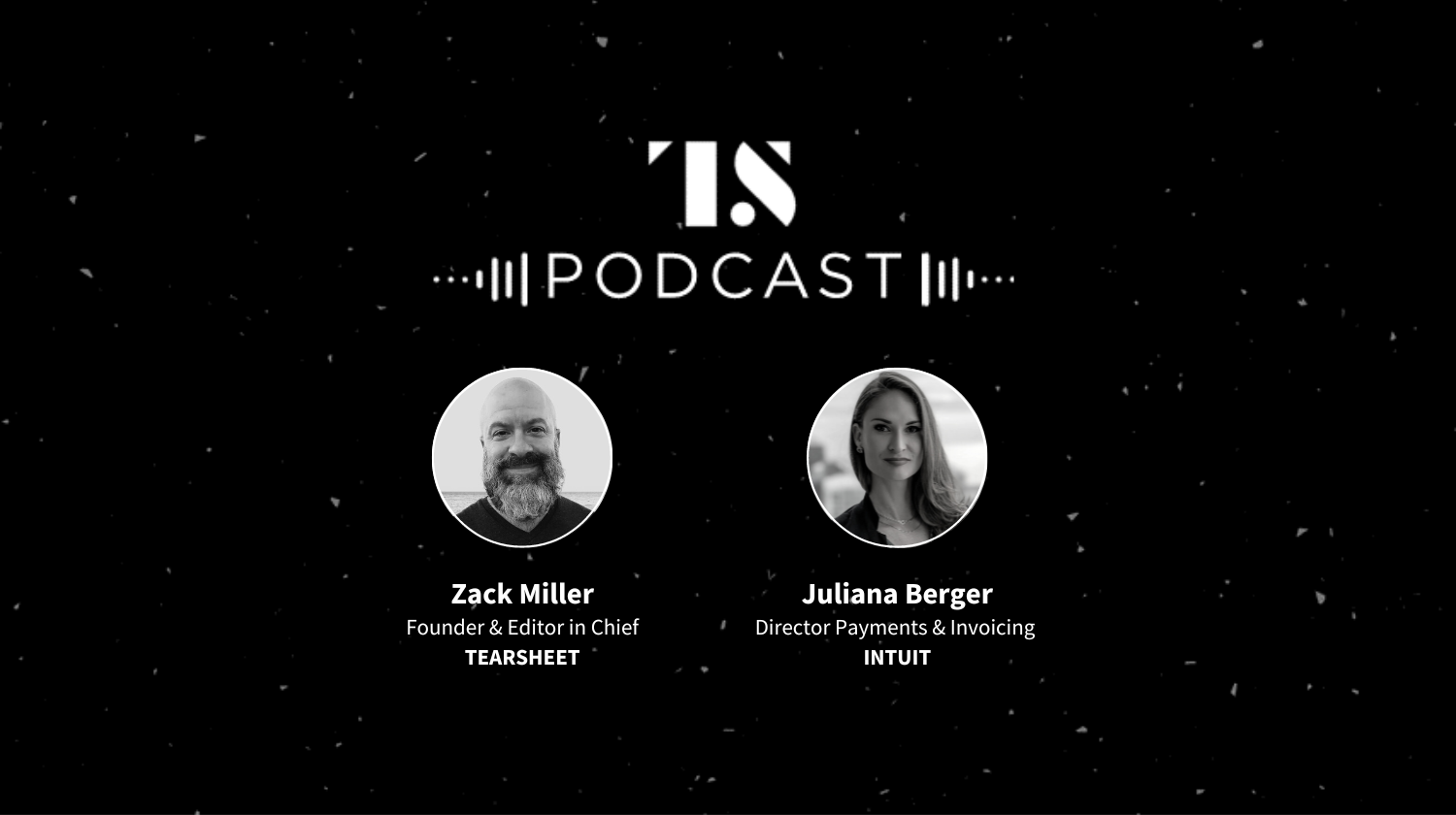Podcasts
Behind the launch of the QuickBooks Business Network with Intuit’s Juliana Berger
- Intuit is looking to get a bigger payments chunk of the $2 trillion in invoices it tracks on QuickBooks.
- The firm has launched a B2B business network aimed at targeting larger firms with payments automation.








